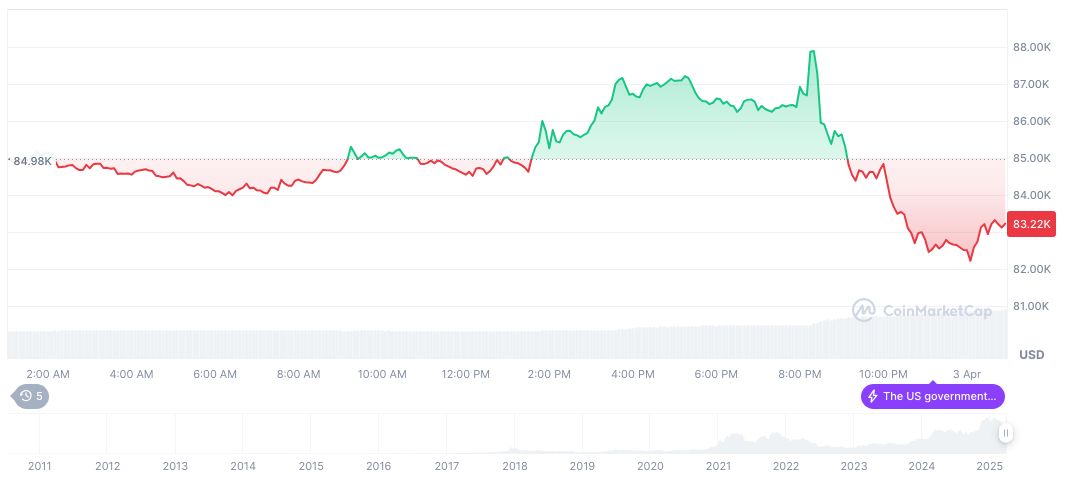- Arizona House Committee approved Bitcoin Reserve Bills SB 1025 and SB 1373.
- Measures allow investment up to 10% of assets into digital assets like Bitcoin.
- Potentially positions Arizona at the forefront of state-led cryptocurrency reserves.
The Arizona House Committee has approved Bitcoin Reserve Bills SB 1025 and SB 1373. These measures, set to undergo three readings in the House before a final vote, may soon reach Governor Katie Hobbs if approved. ChainCatcher.
Republican Senator Wendy Rogers, the sponsor of SB 1025, leads the push for the Arizona Strategic Bitcoin Reserve Act. This legislation permits the State Treasurer and retirement system to invest up to 10% of assets into digital assets such as Bitcoin. By establishing a “Digital Assets Strategic Reserve Fund,” SB 1373 shares similar goals.
Bitcoin Reserve Bills and Their Impact
The bills authorize significant changes within the state’s investment strategies, supporting Bitcoin reserves as a fiscal tool. Initial market observations show a 1.36% fluctuation in Bitcoin’s price, reflecting the potential influence of legislative actions. These measures, if passed, would position Arizona at the forefront of state-led cryptocurrency reserves in the U.S.
Mixed reactions from the community have surfaced on platforms like Twitter. Pro-Bitcoin advocates celebrate, while others warn of investment risks at the state level. Wendy Rogers publicized on her official platforms that these bills will boost Arizona’s leadership in digital asset adoption.
“These bills will position Arizona as a leader in digital asset adoption.” – Wendy Rogers, Republican Senator, Arizona Legislature
Bitcoin Trends and Potential State-Led Crypto Strategies
Did you know? Texas and Kentucky have previously introduced similar cryptocurrency legislations, with varied results. While Kentucky passed the “Bitcoin Rights” Bill in 2024 to safeguard crypto usage, Texas awaits final approvals for its own strategic Bitcoin reserve.
Bitcoin (BTC) shows fluctuating trends this period. According to CoinMarketCap, Bitcoin’s current market cap stands at $1.65 trillion, dominating 61.74% of the market. The cryptocurrency has seen a 1.37% price decline over the last 24 hours, trading at $83,038.40. The 24-hour trading volume reached $52.95 billion, with significant changes observed recently.

Coincu research highlights potential outcomes from these bills. If enacted, other states may pursue similar pathways, potentially increasing digital asset integrations in public finance infrastructures. Historically, Arizona has driven innovative legislation, and these measures may further boost strategic investment potentials through Bitcoin, given its circulation and capped supply of 21 million tokens.























